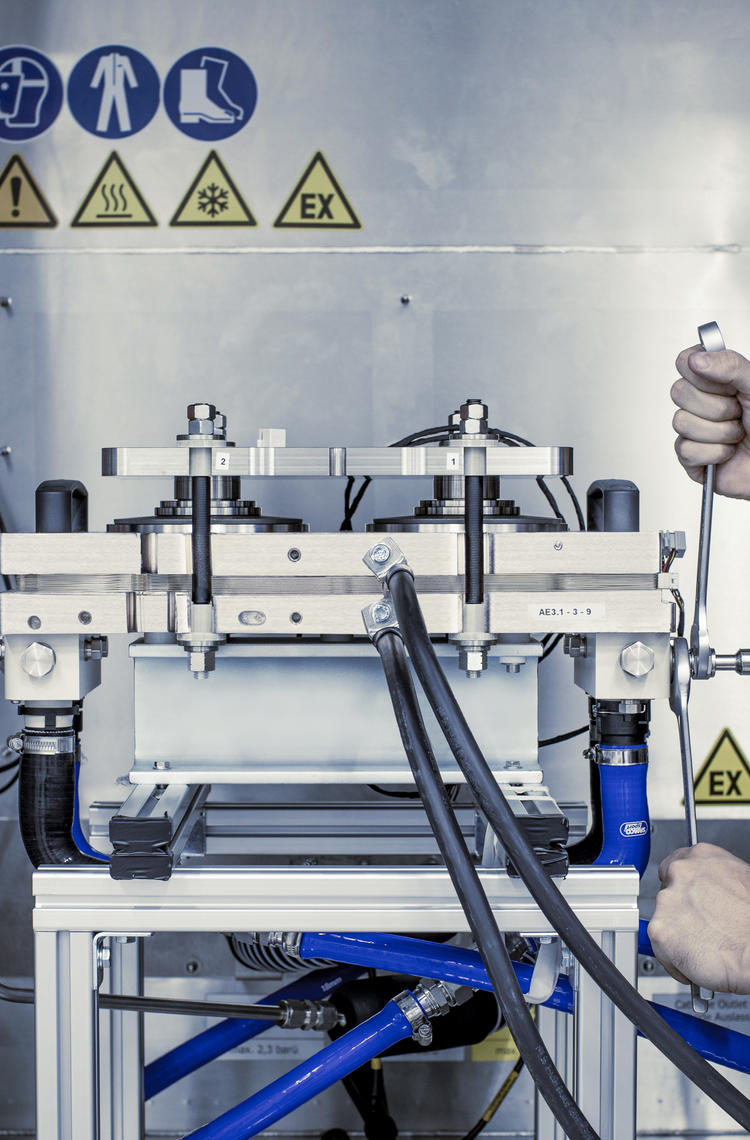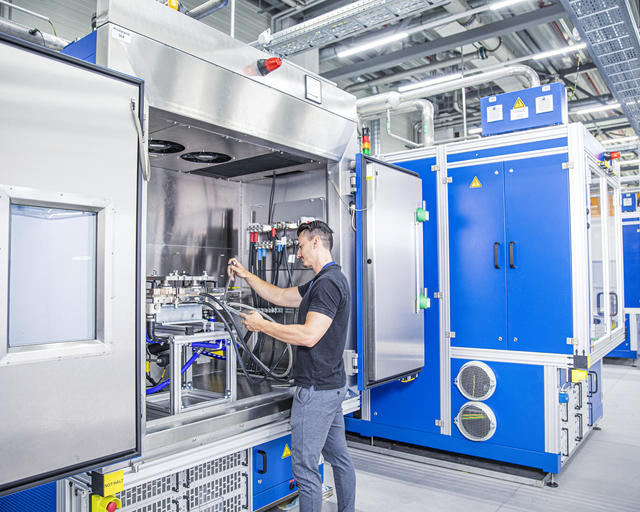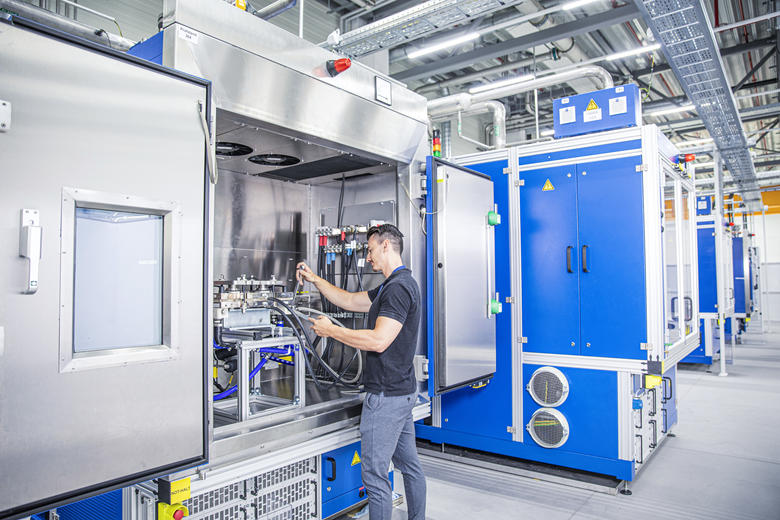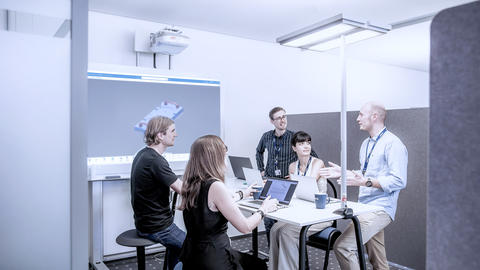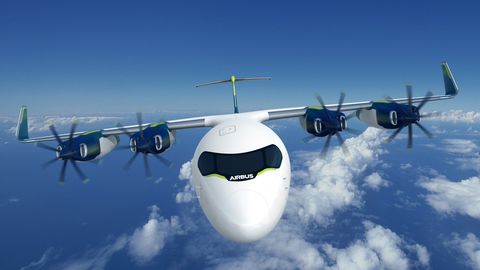Pioneering ZEROe’s hydrogen fuel cell stacks
FUEL CELL INNOVATION
Airbus’ ZEROe project is developing a hydrogen-powered aircraft that uses hydrogen fuel cells as a power source. As there are no commercially available hydrogen fuel cells that meet aviation’s strict safety and weight restrictions, we have founded a partnership to create them ourselves.
Airbus Aerostack GmbH was founded in 2020 as a joint venture between Airbus and automotive supplier ElringKlinger. This collaboration is focused on researching, developing and assembling the fuel cell stacks that will potentially power a ZEROe aircraft. In addition to the power-generating fuel cells, the propulsion system includes an electrically driven motor and propeller, and a hydrogen fuel tank.
Hydrogen fuel cell basics
SCALABLE POWER
Hydrogen fuel cells convert energy stored in hydrogen and oxygen molecules into electricity through an electrochemical reaction. They are highly efficient, and unlike batteries they can operate continuously, as long as a constant supply of hydrogen is ensured. Most importantly, they do not create any CO2 or NOx emissions: the only byproducts of the reaction are heat and water. They can also be connected to other fuel cells to create a fuel cell stack, enabling scalable power generation.
The latest in low-carbon aviation
In the spotlight
-
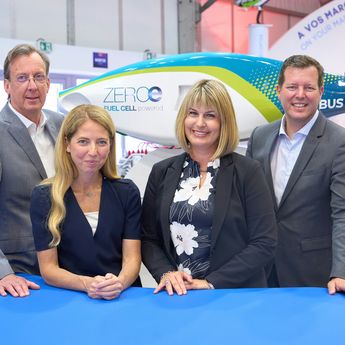
Airbus and MTU Aero Engines advance on hydrogen fuel cell technology for aviation
Press Release
Innovation
Airbus and MTU Aero Engines have signed a Memorandum of Understanding (MoU) to progress together on hydrogen fuel cell propulsion. -
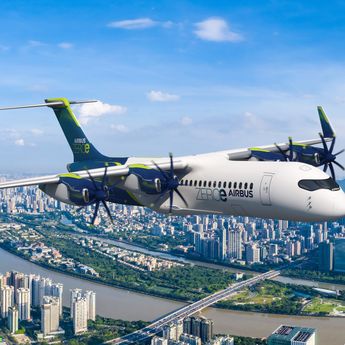
Airbus showcases hydrogen aircraft technologies during its 2025 Airbus Summit
Press Release
Innovation
-

Developing a global ecosystem to support hydrogen-powered flight
Web Story
Innovation
-
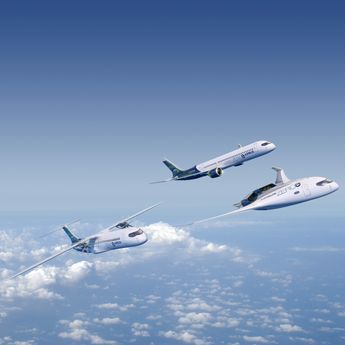
Airbus partners with Avolon to explore future of hydrogen aviation
Press Release
Innovation
-

Airbus welcomes London Gatwick to global hydrogen hub network
Press Release
Innovation
